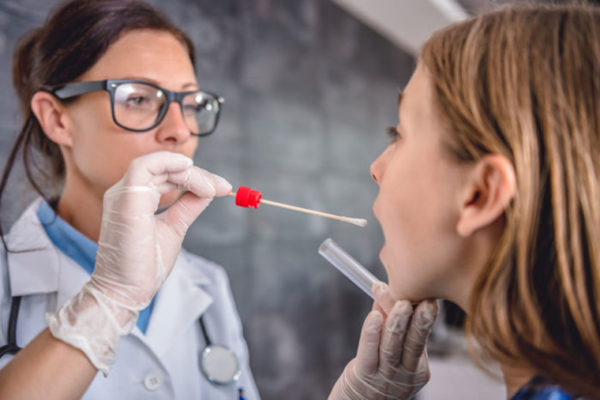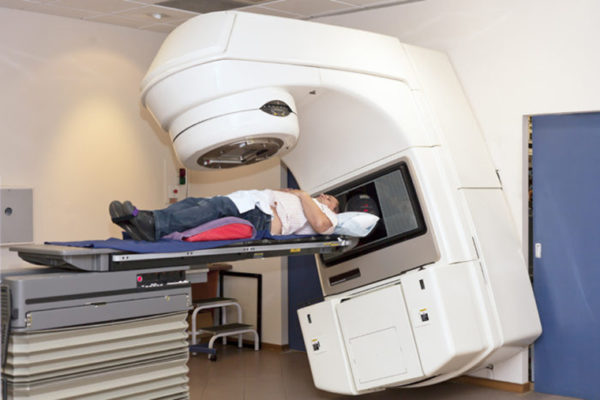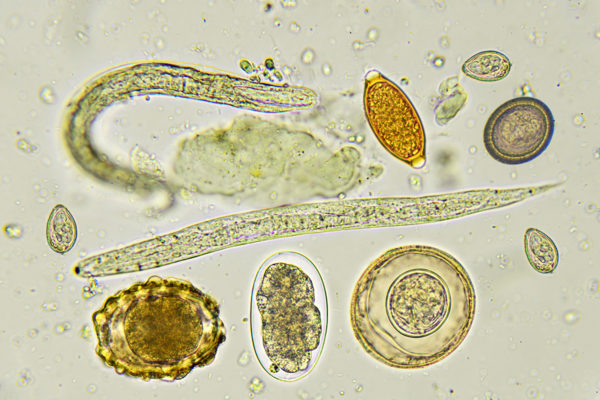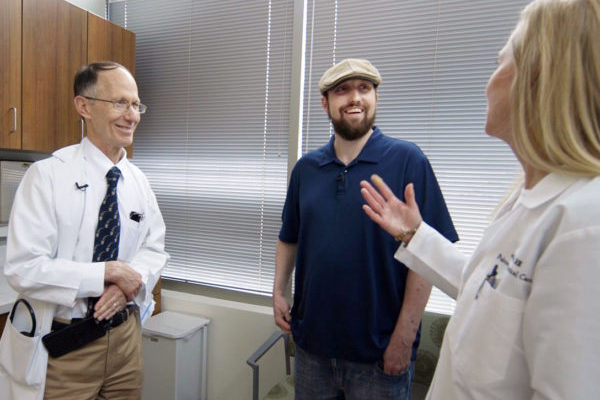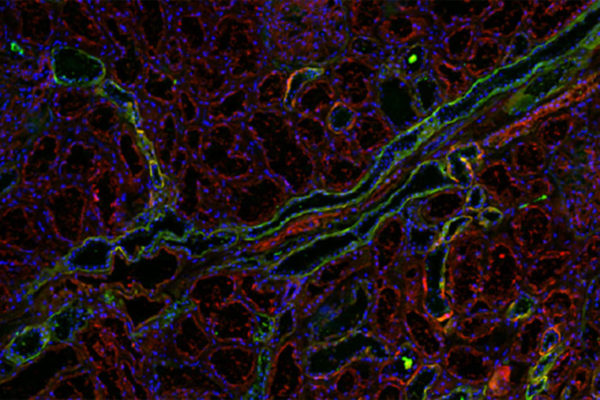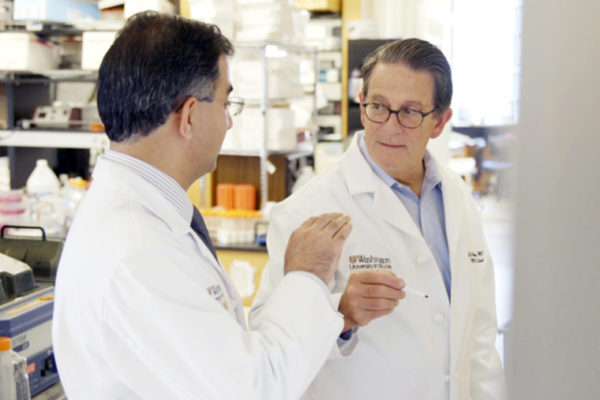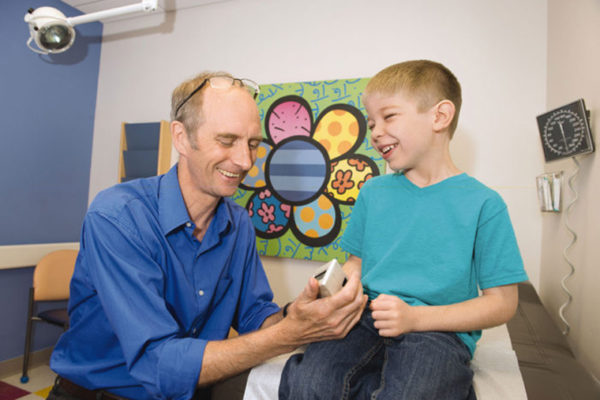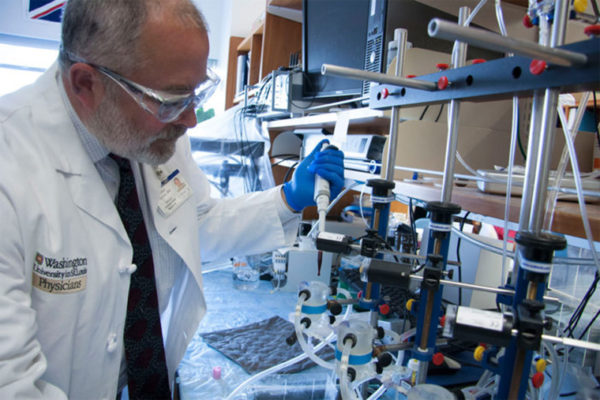Link between two key Alzheimer’s proteins explained
Researchers at the School of Medicine are getting a clearer picture of the connection between tau and amyloid beta, the two proteins at the heart of Alzheimer’s disease. Their insights may lead to new treatments.
Infectious diseases docs may be lifesaving for patients with antibiotic-resistant infections
For patients with difficult-to-treat, drug-resistant infections, seeing an infectious diseases specialist can be a lifesaver. Such patients experienced significantly lower mortality rates when treated by physicians specializing in infectious diseases, according to a School of Medicine study.
Higher doses of radiation don’t improve survival in prostate cancer
A new study shows that higher doses of radiation do not improve survival for many patients with prostate cancer, compared with the standard radiation treatment. The analysis, which included 104 radiation therapy oncology groups across North America, was led by researchers at the School of Medicine.
No progress seen in reducing antibiotics among outpatients
Despite public health campaigns aimed at reducing unnecessary prescriptions for antibiotics, the drugs continue to be prescribed at startlingly high rates in outpatient settings such as clinics and physician offices, according to a new School of Medicine study.
Gut microbes influence severity of intestinal parasitic infections
A new School of Medicine study indicates that gut microbes influence the severity of parasitic worm infections in developing countries. The findings suggest that manipulating the gut’s microbial communities may offer protection.
New way to fight sepsis: Rev up patients’ immune systems
A small clinical trial led by Richard S. Hotchkiss, MD, at the School of Medicine, shows that a drug that revs up the immune system holds promise in treating sepsis. The approach goes against the grain of earlier strategies that have relied on antibiotics and inflammatory medications to tamp down the immune system.
Decoy molecules target E. coli to treat UTIs in mice
School of Medicine researchers report they found a way to treat urinary tract infections without using antibiotics, at least in mice. The scientists are working on an alternative that would prevent bacteria from causing disease.
CRISPR enhances cancer immunotherapy
Scientists at the School of Medicine have used the gene-editing technology CRISPR to engineer human T cells that can attack human T cell cancers without succumbing to friendly fire. The study evaluating the approach in mice appears online in the journal Leukemia.
$6.8 million to fund research into Cantu syndrome, cardiovascular disease
Colin Nichols, the Carl F. Cori Professor of Cell Biology and Physiology, has received a grant to study how the genetic mutations underlying Cantu syndrome are linked to cardiovascular disease.
$5 million aids development of artificial red blood cells
A research team from the School of Medicine led by Allan Doctor, MD, has received $5 million in grants to develop artificial red blood cells to act as a blood substitute. The research aims to prevent deaths from traumatic bleeding.
View More Stories

